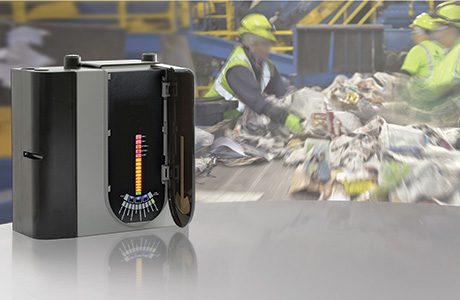
DIVERSIFIED technology manufacturer Honeywell says its FAAST Aspiration Smoke Detector (ASD) is being implemented by a growing number of recycling and waste management plants. The firm says: “Offering the earliest, most accurate smoke detection, class-leading filtration and system design that removes both dust-stimulated false alarms and problems arising from environmental fluctuation, FAAST provides the highest provision of safety.”
Despite the WISH guideline release in 2014, fire events are still highly prevalent. In fact, five fires took place in April alone this year; the Recycling Lives fire in Lancashire on 9th April; the Recycling Lives Preston fire on 10th April; the Ramsey Heights fire in Cambridgeshire on 13th April; the Mangotsfield, Bristol fire on 24th April; and the JSW Waste fire in Salford, Manchester on the 26th April. In fact, Salford experienced two devastating fires in just eight weeks.
ASD technology is growing steadily in popularity; the WISH Guidelines recommend its use on page 24 of the report. Honeywell’s FAAST system is now installed in some recycling and waste management plants, with many more carrying out evaluations.
Tim Checketts of Honeywell Fire Safety, commented: “The WISH Guidelines are helping more sites implement better fire protection, but the incidents in April alone really do highlight the extreme risks.” He said that the high dust prevalence and environmental fluctuations that cause increased false alarms demand both high performance and high stability solutions. False alarms lead to disruptions – at least 30 minutes unplanned downtime to investigate each event. They also present increased maintenance requirements. These combined aspects lead many sites to implement solutions that only meet minimum regulations.
“Regulations and insurance pre-requisites are becoming more stringent, which from a safety perspective is a good thing, but for many firms already under pressure from raised premiums, the implementation of enhanced-safety solutions may seem economically unviable. A solution like FAAST really can deliver on all levels, while also reducing the total cost of fire safety.”
The device uses a three-stage filtration technique, dual-optics particle analysis and intelligent algorithms that effectively distinguish smoke from dust.
[hr]
• View the WISH Guidelines CLICK HERE







